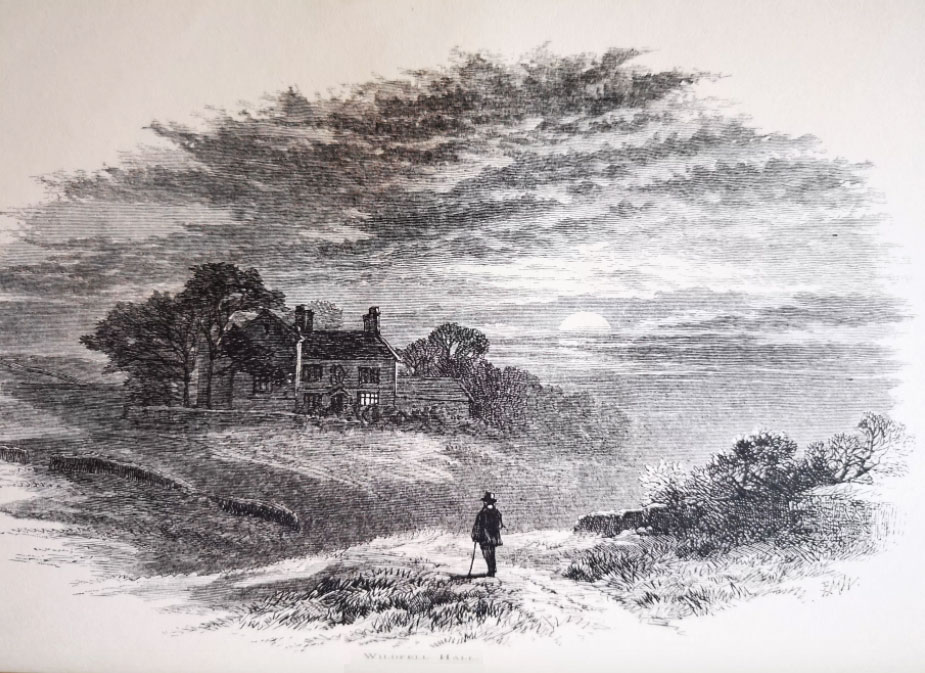Connecting the Invisibles
A Response by Eugene Peterson on Faith & Art
In the early 1990s Eugene Peterson gave a series of lectures at Regent College in Vancouver, B.C. on the life of King David. Audiotapes of the lectures were issued by Regent College, and they were published in book form in 1997 by HarperCollins Publishers as Leap Over a Wall: Earthy Spirituality. (See Touchstone, Fall 1997, p. 43.)
The tapes record Peterson’s responses to some written questions that were submitted to him. His unpublished response to the following questioner—shortly after his lecture on David’s encounter with Goliath—is reproduced here as an example of the “catholic imagination” at work. (–Ed.)
Dr. Peterson, this morning as I sat in your class and listened to your words with my heart, my eyes moved over into the biblical account of David’s face-off with Goliath. My imagination was so stirred by the sounds, sights, and smells in the valley that I began to write a poem this afternoon. I’ve written poetry before, but stopped when it seemed I had no audience. I could write prose, of course, but this is not my question.
My question is: in a society that places a high premium on usefulness and salability, what is the value of one more person writing creatively or painting? What is the value of striving and stimulating my imagination, and working intensely, even for a few hours, to write a poem or a piece of prose that will not be read by anyone other than my encouraging husband? Are we to develop our imaginations to prepare us for the staggering reality of heaven, or to help us to be co-creators with our Creator, who is also a Father? Is a developed imagination of any earthly value, or only useful in eternity?
—[An unnamed participant]
Eugene Peterson: This question is right at the heart of what we’re doing. I love this question because it cuts right to the heart of the kind of life that we have in Jesus.
As the questioner states, “We live in a world where a premium is placed on usefulness and salability.” The whole Christian enterprise, friends, cuts right across that. We must not let ourselves be confined by our function. We are elected, we are named. David, to start out with, was defined by his function, by his parents and brothers, and he was nothing. And the Word of God defined him in a new way. I think every family needs a poet; every neighborhood needs a poet, a painter. Art has been commercialized, functionalized like so much else, and sometimes great artists somehow survive the process, but it’s difficult. But art is first of all local. You become a storyteller to your children or to your neighborhood or to your spouse. You write poems for the occasion in your family or your church.
For example, when I was a pastor, we had great church bulletin art, greatest of any church I’ve ever seen. Do you know where we got it? Out of the four and five year olds in their Sunday School classes. We had these wonderful pictures of Jesus and Moses and Elijah, and the fish and the birds from the “artists” in our congregation. So I guess what I’m saying is that I don’t want any of you to be intimidated by salability or recognition. Whom do you want to be recognized by? Your kids and your friends, of course. I receive marvelous poems and songs from people whom I don’t know, and I treasure them.
Art, true art, is always local. It starts locally. Sometimes it captures the mood of a culture, it captures an era, and suddenly everybody recognizes himself in a Picasso or a Rembrandt or a Monet. You say, “Here’s harmony, melody, depth in a Mozart.” But most artists don’t become famous. We can’t let these famous artists be the judge as to whether we’re artists or not. They all started out like we do: ninety percent of fame is just luck, and much of the great art is buried some place or other. So I’m using “art” here in the way the questioner does—as your honest response to how you’re living and shaping your world. Are you willing to become an “unfamous” artist?
There are so many parallels between writing a poem and living a holy life: you get rid of the false, the fraudulent, the filler, the nonsense. You start out with five hundred words and you end up with six or seven, but they’re true. There’s just so much lying. We lie so much of the time without even knowing that we’re lying. And when you paint a picture truly, when you write a poem, when you sing a tune, tell a story, and you do it right—and we don’t always do it right (we fumble a lot)—but you don’t quit keeping the Ten Commandments because you break one, do you? You don’t say, well, it’s not for me! I can’t do that, so I’ll do something else. The life of the imagination is not the same thing exactly, but it’s close.
The life of the imagination and the life of faith partake of many of the same qualities. Imagination always feeds faith, or rather, imagination is always there to feed faith if we’ll let it. We’re dealing with what is not obvious, what comes from the inside out, we’re connecting the invisibles. So write those poems, sing those songs, dance, tell stories. We Evangelicals, in particular, need to grasp this. It’s the heart of what we’re doing.
subscription options
Order
Print/Online Subscription

Get six issues (one year) of Touchstone PLUS full online access including pdf downloads for only $39.95. That's only $3.34 per month!
Order
Online Only
Subscription

Get a one-year full-access subscription to the Touchstone online archives for only $19.95. That's only $1.66 per month!
bulk subscriptions
Order Touchstone subscriptions in bulk and save $10 per sub! Each subscription includes 6 issues of Touchstone plus full online access to touchstonemag.com—including archives, videos, and pdf downloads of recent issues for only $29.95 each! Great for churches or study groups.
Transactions will be processed on a secure server.
more from the online archives

28.2—March/April 2015
Man, Woman & the Mystery of Christ
An Evangelical Protestant Perspective by Russell D. Moore
calling all readers
Please Donate
"There are magazines worth reading but few worth saving . . . Touchstone is just such a magazine."
—Alice von Hildebrand
"Here we do not concede one square millimeter of territory to falsehood, folly, contemporary sentimentality, or fashion. We speak the truth, and let God be our judge. . . . Touchstone is the one committedly Christian conservative journal."
—Anthony Esolen, Touchstone senior editor









